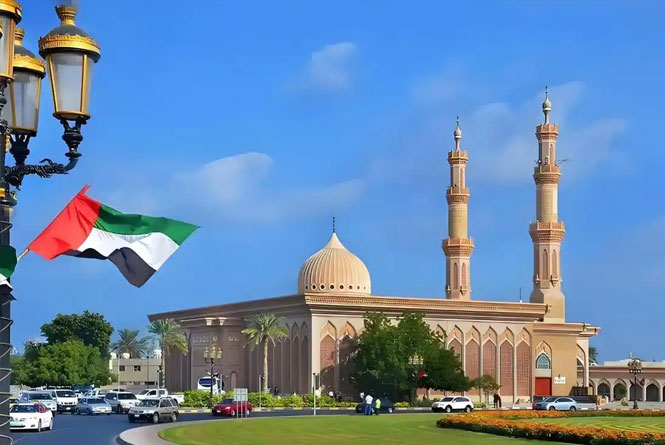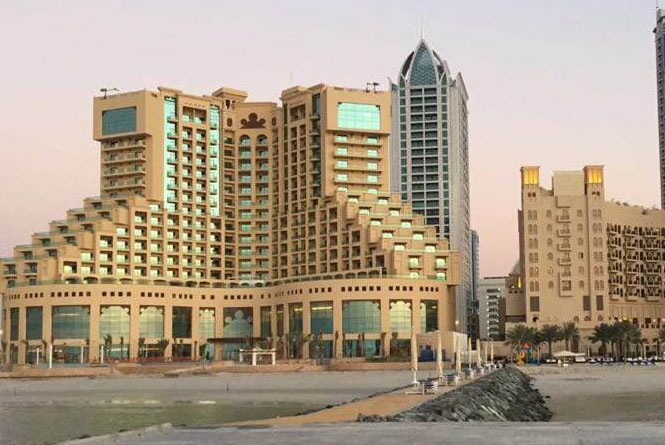Dubai’s meteoric rise as a global business powerhouse is no accident. Strategic location, world-class infrastructure, tax incentives, and a forward-thinking government have cemented its position as a premier destination for entrepreneurs and multinational corporations alike. Company formation in Dubai unlocks access to a dynamic market spanning the Middle East, Africa, South Asia, and beyond. However, navigating the licensing in Dubai landscape requires understanding the various options and processes. This comprehensive guide explores the critical aspects of setting up your business in this thriving emirate.

The fundamental choice when considering company formation in Dubai is deciding between setting up in one of the numerous Free Zones or on the Mainland. This decision profoundly impacts ownership structure, operational scope, licensing requirements, and costs.
Free Zones:
100% Foreign Ownership: This is the most significant advantage. Free Zones allow expatriate investors full ownership of their company without requiring a local UAE national partner or sponsor.
Tax Benefits: Free Zones typically offer corporate and income tax exemptions for a renewable period (often 15-50 years), alongside full repatriation of profits and capital. While the UAE has introduced Federal Corporate Tax, Free Zones remain attractive, especially for qualifying activities.
Specific Industry Focus: Each Free Zone often caters to specific sectors (e.g., Dubai Internet City for tech, Dubai Media City for media, DMCC for commodities trade, DIFC for finance). This creates industry-specific ecosystems with tailored support services.
Streamlined Setup: Free Zone company formation processes are usually highly efficient, with a "one-stop-shop" model where the Free Zone Authority handles licensing, registration, visa processing, and sometimes even facilities leasing.
Operational Limitations: Free Zone companies generally have restrictions on conducting business directly within the UAE Mainland market without engaging a local distributor or agent or setting up an additional mainland entity. Their physical operations are confined to the Free Zone premises unless special permits are obtained.
Mainland:
Unrestricted Market Access: A Mainland Dubai business license (issued by the Dubai Department of Economy and Tourism - DED) allows companies to trade directly anywhere within the UAE, including Dubai itself and other emirates, without restrictions.
Local Presence Requirement: Historically, most mainland activities required a UAE national to hold 51% of the company shares (with some notable exceptions). However, recent landmark reforms have significantly expanded sectors allowing 100% foreign ownership for mainland companies. It's crucial to check the current "Commercial Companies Law" and the DED's "Positive List" of eligible activities.
Broader Activity Scope: The range of permissible business activities on the mainland is generally wider than any single Free Zone.
Government Procurement: Access to lucrative government tenders and contracts is typically easier for mainland entities.
Potentially Higher Setup/Operational Costs: Costs can be higher than some Free Zones, considering office space requirements (often needing physical premises) and potential sponsor fees if applicable.
Choosing between Free Zone and Mainland company formation in Dubai depends on your target market, ownership preferences, industry, and budget.

The type of business activity dictates the required license in Dubai. The main categories are:
Commercial License: Issued for trading activities – buying and selling goods. This is the most common license type for import/export, retail, wholesale, and general trading companies. Obtaining a commercial license in Dubai is essential for any trading entity.
Professional License: Issued to individuals or companies providing professional services, consultancy, or artisanship (e.g., legal, accounting, engineering, medical, IT services, education, marketing, crafts). Professionals often need relevant educational qualifications and experience recognized in the UAE.
Industrial License: Required for companies involved in manufacturing or industrial activities, transforming raw materials into finished products. This involves additional approvals from relevant authorities like the Dubai Municipality and Ministry of Industry & Advanced Technology, focusing on environmental regulations and factory location.
Tourism License: Specific license issued by the Dubai Department of Economy and Tourism (DET) for businesses operating in the tourism sector (e.g., travel agencies, tour operators, hotel management).
Specialized Licenses: Certain high-impact activities require licenses from specific regulatory bodies in addition to the DED or Free Zone license. Examples include:
Financial Services: Regulated by the Dubai Financial Services Authority (DFSA) in DIFC or the Central Bank of the UAE (CBUAE) on mainland.
Healthcare: Regulated by the Dubai Health Authority (DHA) or Ministry of Health & Prevention (MOHAP).
Education: Regulated by the Knowledge and Human Development Authority (KHDA) for Dubai private schools or the Ministry of Education (MOE).
Food & Beverage: Require approvals from Dubai Municipality.
Media: Regulated by the Dubai Media Council (DMC) or National Media Council (NMC).
Accurately defining your business activity is paramount for obtaining the correct Dubai business license.
While specifics vary slightly between Free Zones and the DED, the core company formation Dubai process follows a general pattern:
Define Business Activity & Legal Structure: Precisely determine your primary and secondary activities and choose your legal form (e.g., Free Zone Establishment (FZE), Free Zone Company (FZC), Limited Liability Company (LLC) on mainland, Branch Office, Representative Office). This directly impacts licensing in Dubai requirements.
Choose Trade Name: Select a unique name compliant with UAE naming conventions (avoiding offensive words, religious references, or existing trademarks) and get initial approval from DED or the Free Zone Authority.
Apply for Initial Approval: Submit the initial application to the DED or chosen Free Zone Authority, outlining your proposed business activity and structure. This signifies preliminary government consent.
Draft Legal Documents (MoA/LLC Agreement): For mainland LLCs, draft the Memorandum and Articles of Association (MoA) defining the company's constitution, ownership, and management. Free Zones have their own standard forms. Local Service Agent (LSA) agreements may be needed for specific mainland structures where 100% foreign ownership isn't applicable.
Secure Physical Premises: Lease office space (required for mainland LLCs, and most Free Zone packages include flexi-desk or office options). Obtain an Ejari (tenancy contract registration). Virtual offices are often available in Free Zones.
Obtain External Approvals (If Applicable): For specialized activities (e.g., healthcare, education, finance), secure pre-approvals from the relevant regulatory bodies before final license issuance.
Submit Final Application & Pay Fees: Submit all finalized documents (drafted MoA/LLC Agreement, LSA agreement if needed, lease contract/Ejari, passports/shareholder details, external approvals) and pay the relevant government and authority fees for company formation Dubai and the Dubai business license.
Receive Incorporation Documents & License: Upon approval, you receive the company's Certificate of Incorporation/Registration, the official business license in Dubai, and share certificates (if applicable).
Register with Chamber of Commerce: Mandatory registration with the Dubai Chamber of Commerce and Industry.
Open Corporate Bank Account: Approach UAE banks with your incorporation documents and license to open your company bank account.
Apply for Visas: Apply for employee residence visas and Emirates IDs through the relevant authority (Free Zone or DED/GDRFA).
Engaging a reputable business setup consultant is highly recommended to navigate this process efficiently and ensure compliance.
Preparing the correct documentation is critical for successful company formation and licensing in Dubai. Core requirements typically include:
Passport Copies: Clear, colored copies of passports for all shareholders, directors, and managers.
Visa Copies/Entry Stamps: If residing in the UAE.
Proof of Address: Utility bills or bank statements from the shareholder's home country (usually notarized and legalized/apostilled).
Business Plan: Often required, especially by Free Zones or banks.
No Objection Certificate (NOC): If the applicant is currently employed in the UAE and sponsored by their employer.
Curriculum Vitae (CV): For shareholders/directors, particularly for professional licenses.
Educational Certificates/Professional Qualifications: Relevant for professional licenses or specialized activities.
Tenancy Contract (Ejari): Proof of physical office space (mainland and some Free Zone packages).
Memorandum and Articles of Association (MoA): For mainland LLCs.
Local Service Agent (LSA) Agreement: If applicable for certain mainland structures.
External Approvals: For specialized activities.
Application Forms: Completed and signed forms from the DED or Free Zone Authority.
Specific licensing in Dubai might demand additional documents related to the activity (e.g., menus for F&B, equipment lists for industrial).
Company formation Dubai costs vary significantly based on:
Jurisdiction: Free Zone vs Mainland (and which specific Free Zone).
License Type: Commercial, professional, industrial, tourism, or specialized.
Legal Structure: FZE, FZC, LLC, Branch.
Office Space: Size, location, and type (physical office, flexi-desk, virtual).
Share Capital: Minimum capital requirements (often nominal in Free Zones, potentially higher for mainland LLCs in specific sectors).
Government & Authority Fees: License issuance, registration, name reservation, visa processing fees.
Professional Fees: If using a business setup consultant or PRO (Public Relations Officer) services.
Typical costs can range from AED 15,000 to AED 50,000+ for initial setup, excluding office rent.
Ongoing Compliance & Costs:
License Renewal: Business licenses in Dubai (both Free Zone and Mainland) require annual renewal, attracting renewal fees.
Office Space Rent: Annual rental payments.
Visa Renewals: Annual renewal costs for employee residence visas and Emirates IDs.
PRO Services: Many companies use PROs to handle routine government transactions and renewals.
Accounting & Bookkeeping: Maintaining proper financial records is mandatory.
Corporate Tax Registration & Filing: Since its introduction, registering for Corporate Tax and filing annual returns is mandatory for qualifying businesses.
Economic Substance Regulations (ESR): Relevant businesses must demonstrate adequate substance in the UAE.
AML/CFT Compliance: Adherence to Anti-Money Laundering and Countering Financing of Terrorism regulations.
Budgeting for both initial company formation Dubai costs and ongoing operational/compliance expenses is essential.
Dubai continuously refines its regulatory environment to enhance competitiveness:
Expanded Foreign Ownership: The amended Commercial Companies Law allows 100% foreign ownership for mainland companies across most economic sectors, eliminating the need for a local partner in many cases (though some exclusions remain).
Virtual Company Licenses: Introduction of affordable virtual licenses (e.g., DED's "Virtual Company" license, various Free Zone e-commerce licenses) enabling remote business operation with minimal setup.
Enhanced Digital Services: Significant investment in online portals (DED's "Invest in Dubai", Free Zone portals) streamlining application, payment, and renewal processes for licensing in Dubai and company formation.
Introduction of Corporate Tax: A Federal Corporate Tax rate of 9% applies to taxable profits exceeding AED 375,000. Free Zone businesses can benefit from a 0% CT rate if they meet qualifying activity and substance requirements.
Focus on Sustainability & Innovation: Initiatives supporting green businesses, fintech, AI, and advanced technology companies are prominent.
The future points towards further digitalization, regulatory harmonization, and initiatives to attract high-growth industries, solidifying Dubai's position for global company formation.
Company formation and licensing in Dubai offer a strategic pathway to tap into one of the world's most dynamic and interconnected markets. Understanding the nuances between Free Zones and Mainland, selecting the correct license type, meticulously following the setup process, and planning for ongoing compliance are critical steps. While the landscape is complex, the benefits – strategic location, tax efficiency, world-class infrastructure, and a pro-business government – are substantial. By leveraging the resources available, including professional setup consultants and increasingly streamlined digital government services, entrepreneurs and established businesses can successfully navigate the process and establish a thriving presence in the heart of the Middle East. Thorough research, careful planning, and expert guidance are the keys to unlocking the immense potential that Dubai business license opportunities provide.










Zhuoxin Consulting relies on its Chinese service network and Dubai executive team to provide professional one-stop business services without communication barriers for Chinese companies to enter the Middle East market. Its business covers company establishment and maintenance, accounting and taxation, bank account opening, PRO services and business services.
Zhuoxin Consulting has high-quality business resources and maintains close cooperation with many free zones, bankers and tax departments in the UAE to escort your expansion in the Middle East market.
 Add WeChat
Add WeChat